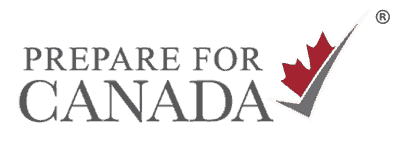
To work as an engineer in Canada you must have Canadian credentials. But, while you get your credentials you can work in a job related to engineering if a licensed engineer supervises your work. This is because engineering is a regulated profession in Canada. But only with a Canadian license can you call yourself an engineer in Canada and practice.
The licensed engineer will be accountable for your work as an assistant, junior, or engineer in training, etc. So to work as an engineer in Canada, it’s important to get Canadian credentials.
P.Eng. Required to Work as an Engineer in Canada
Canadian employers place a high value on the professional engineer (P.Eng.) designation. And you require a P.Eng. for many engineering duties and positions. Without this designation, you cannot sign any documents or call yourself an engineer. Each province and territory in Canada has its own regulatory body to license engineers. For example, in Ontario, the Professional Engineers of Ontario can confer the P.Eng. designation. These bodies govern the practice of engineering and integrate skilled immigrants.
Advertisement:
To get your P.Eng. license, you must apply for it and:
- Get recognition for your international degrees
- Pass required exams, and
- Meet all requirements.
For example, you require four years of work experience and one year must be Canadian experience. And you can gain this work experience when you work under the direct supervision of a licensed engineer.
Research How to Work as an Engineer in Canada
It’s important to know how your international qualifications will be viewed and what you need to work as an engineer in Canada. It’s also helpful to research the Canadian labour market and job prospects for your engineering type. These are some of the steps you can that you can take before you immigrate to Canada. And with this information, you will have greater success in resuming your career in Canada.
Get Credentials to Work as an Engineer in Canada
It can be time-consuming to get your international education and work experience evaluated. However, you can start the assessment process before you arrive in Canada. For example, you can gather and organize your official education and work documents while still in your home country.
A great place to start is to contact the regulatory body in the province where you intend to work. The regulatory body can tell you what documents you need to bring. As well, the licensing body can tell you what you can do before and after you arrive in Canada. This may also save you time and money if you know what you require before you leave for Canada.
Advertisement:
You may also need to translate your documents from a professional translation service in Canada. Again, the regulatory body will provide you with this information.
If you are already in Canada, you can work in a job related to engineering while you work towards getting your P.Eng. But you can only work as an engineer in Canada when you receive your license.

Related Posts:
Engineering jobs in demand in Canada
Engineering Jobs, Salaries, and Careers in Canada | Everything Newcomers Must Know
Benefits of Working in a Job Related to Engineering
While you may have engineering experience from your home country, you require Canadian experience to get your license. So it’s helpful if you can find a job that does not require a P.Eng. license but is related to engineering.
When you work in a job that is related to engineering you can:
- Add value to your existing education and work experience
- Show employers that you’re committed to Canadian standards
- Enhance your language skills
- Develop an understanding of the Canadian workplace, and
- Build your professional network in Canada.
When in job interviews, you can explain to employers that you are currently getting your credentials assessed and when you expect to become a licensed engineer in Canada.
While you pursue your credentials, you can get your foot in the door with an employer. And once hired, you can apply for internal jobs that require a P.Eng. when you receive your license.
Language Ability to Work as an Engineer
You’ll need to prove your English or French (depending on your destination province) language competency or be tested. Even if you speak fluent English or French, it’s helpful to enhance your language skills. You can enroll in language classes while you are in your home country and continue them after you move to Canada. As well, you can assess your language skills by taking an online self-assessment test on the Canadian Language Benchmarks website.
It’s easier for you to gather and organize your official education, work, and identity documents while still in your home country. Check with your provincial or territorial regulatory body to enquire about the documents you need to bring and verify if they will need to be translated. You might need to use a professional translation service in Canada.
You may be eligible for Language Instruction for Newcomers to Canada (LINC) program. Otherwise, you can find other free or affordable classes in English as a Second Language (ESL) or French as a Second Language (FSL) classes through school boards or settlement agencies. There are even language courses to teach you professional terminology, such as Enhanced Language Training (ELT).
Key Takeaways to Work as an Engineer in Canada
1. You can do engineering work in Canada without being licensed, but only under the direct supervision of a Canadian professional engineer (P.Eng.).
2. Without a license from the provincial engineering association, you cannot:
- Call yourself an engineer
- Hold the job title of engineer
- Be recognized as an engineer, or
- Work independently as an engineer in Canada.
3. Contact the provincial engineering association where you intend to work (see links below). Each province may have specific requirements for your engineering background and the licensing process may vary.
4. There are many benefits when you work in an engineering role that does not require a license. For example, it allows you to work in your field while you get your credentials assessed or work towards your P.Eng.
Provincial Regulators:
For more information, tools, and resources about finding a job in Canada be sure to visit our resource page.

Corinna Frattini is the content marketing strategist at Prepare for Canada. She contributes articles to help newcomers achieve their goals in key areas related to living, working, and settling in Canada. With an extensive background in human resources and leadership development, her articles focus on what Canadian employers seek and how newcomers can continue their careers in Canada.

